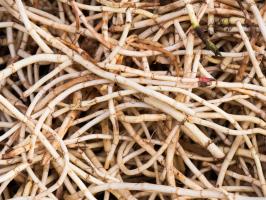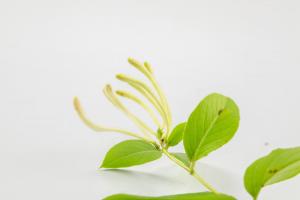Do You Put Water in Pitcher Plants?
Pitcher plants are fascinating carnivorous plants that are known for attracting, capturing, and digesting insects. These plants are native to swampy, boggy areas and are commonly found in North America, South America, and Asia. If you are planning to add a pitcher plant to your collection, you may be wondering - do you put water in pitcher plants?
The Answer
Yes, pitcher plants require water in order to thrive. These plants are adapted to live in wet and boggy areas where there is ample water. In the wild, pitcher plants collect rainwater and other sources of moisture to keep the pitchers filled with fluid. As such, if you want your pitcher plant to grow and be healthy, you must provide it with sufficient water.
How to Water Your Pitcher Plant
When it comes to watering pitcher plants, there are a few things you need to keep in mind. Firstly, you should avoid using tap water or other sources of water that are high in minerals, such as well water. This is because minerals can accumulate inside the pitcher and affect the plant's ability to attract and digest insects. Instead, use rainwater, distilled water or reverse osmosis water.
Secondly, you want to avoid overwatering your pitcher plant. While these plants require water, they do not like sitting in waterlogged soil. As such, it is important to water your pitcher plant regularly but ensure that the soil is well-drained. You can achieve this by planting your pitcher plant in a pot with drainage holes, or by using a well-draining soil mix.
Other Tips for Caring for Your Pitcher Plant
Aside from watering, there are a few other things you can do to keep your pitcher plant healthy. Firstly, make sure that your plant is getting enough light. Most pitcher plants require bright, indirect light, so place them near a window that receives sunlight for at least several hours a day.
Secondly, avoid fertilizing your pitcher plant with regular plant food. These plants extract nutrients from the insects they capture, so adding fertilizer can actually harm your plant. Instead, you can feed your pitcher plant small insects, such as fruit flies or gnats, every once in a while.
Lastly, be careful when handling your pitcher plant. These plants trap insects using a slippery surface inside the pitcher, so it can be easy to accidentally damage the plant or the delicate structures inside the pitcher when cleaning or handling it.
In Conclusion
If you are thinking of adding a pitcher plant to your plant collection, ensure that you provide it with ample water. When watering, ensure that you use rainwater or other sources of water that are low in minerals and avoid overwatering your plant. With proper care, your pitcher plant will thrive and be an interesting addition to your home or garden.

 how many times do yo...
how many times do yo... how many planted tre...
how many planted tre... how many pine trees ...
how many pine trees ... how many pecan trees...
how many pecan trees... how many plants comp...
how many plants comp... how many plants can ...
how many plants can ... how many plants and ...
how many plants and ... how many pepper plan...
how many pepper plan...





























